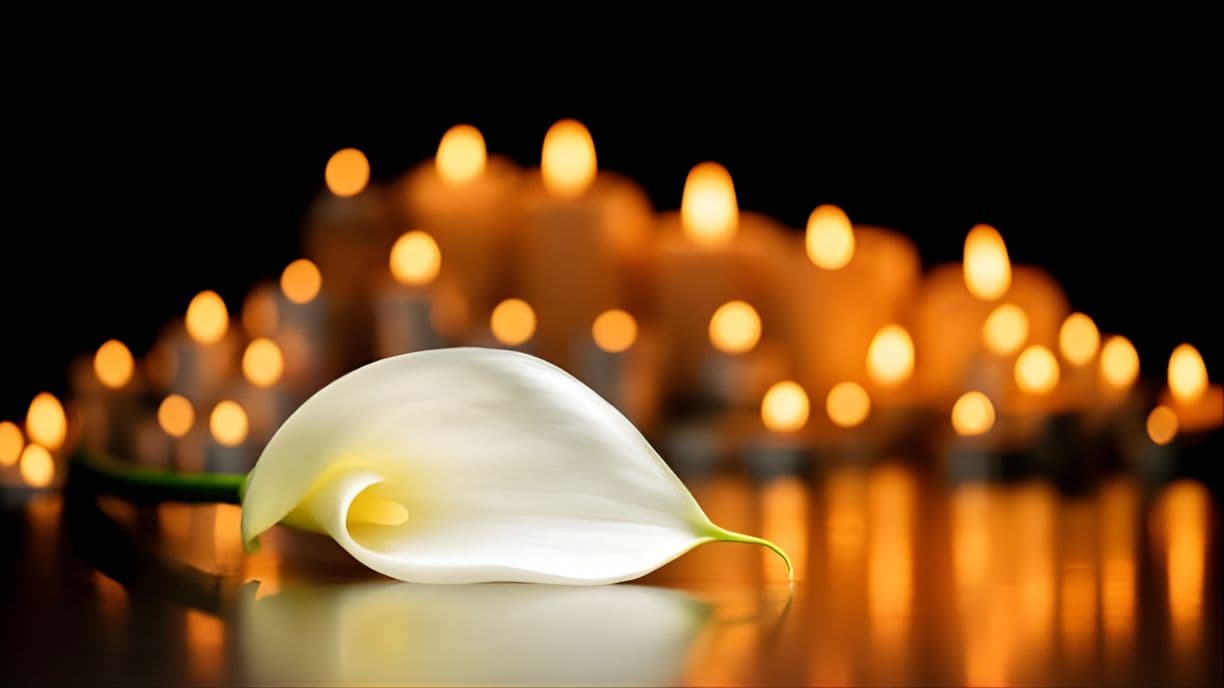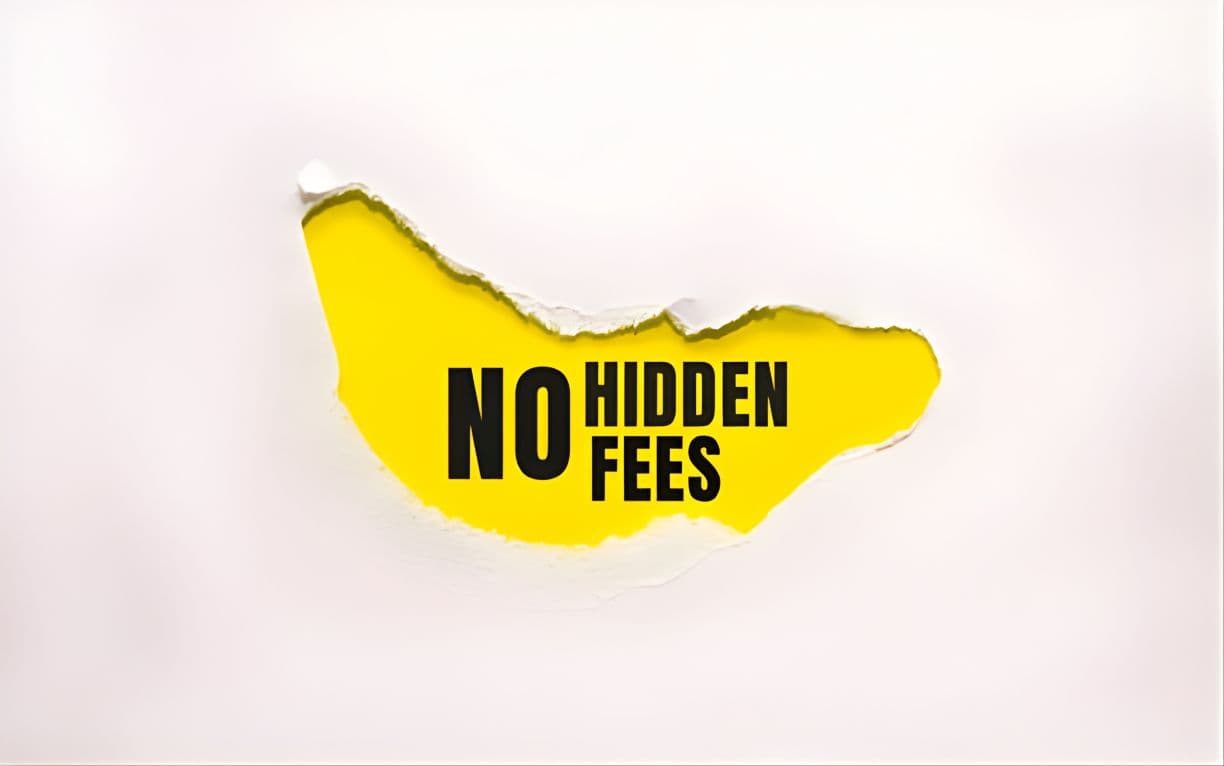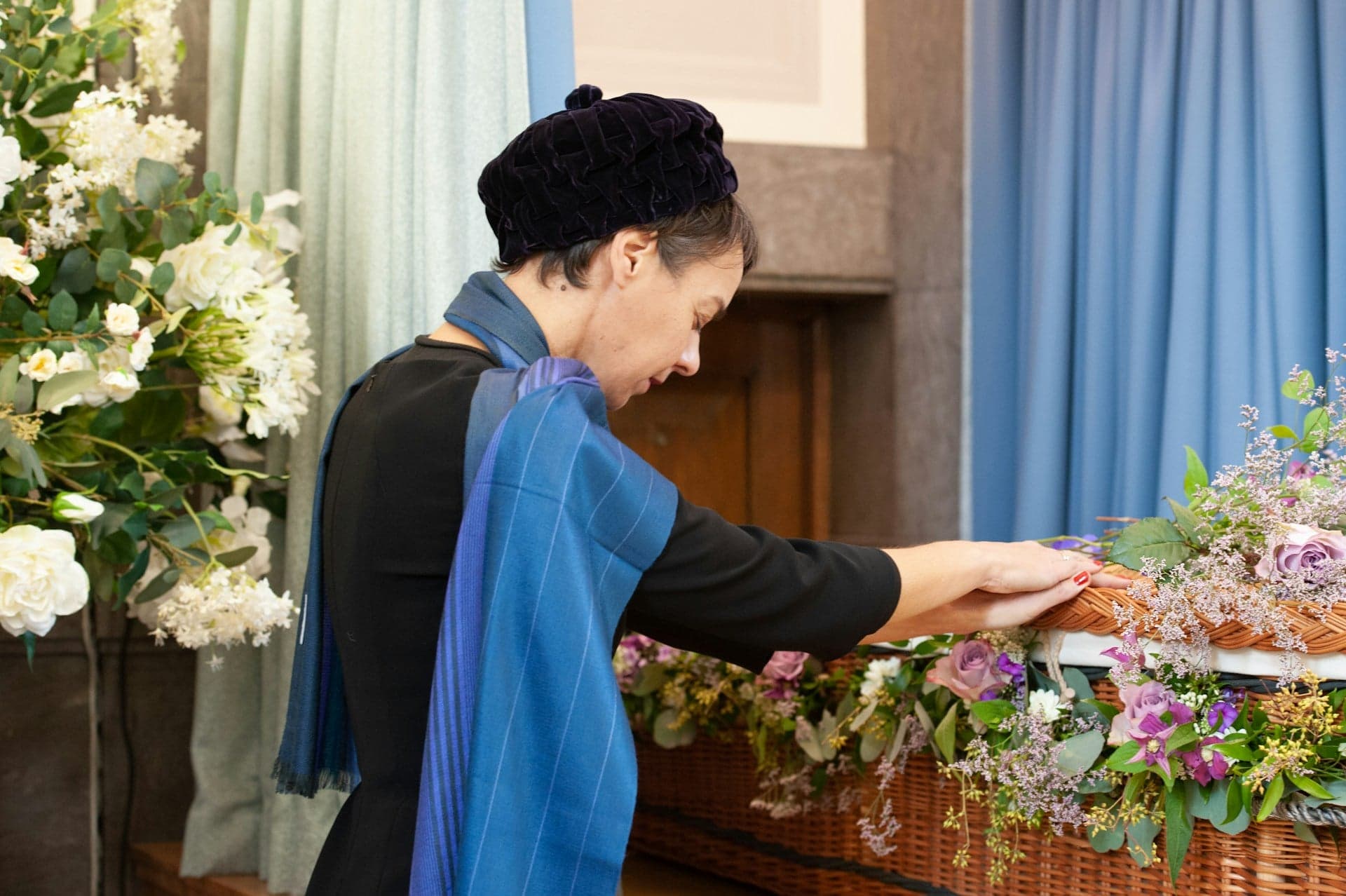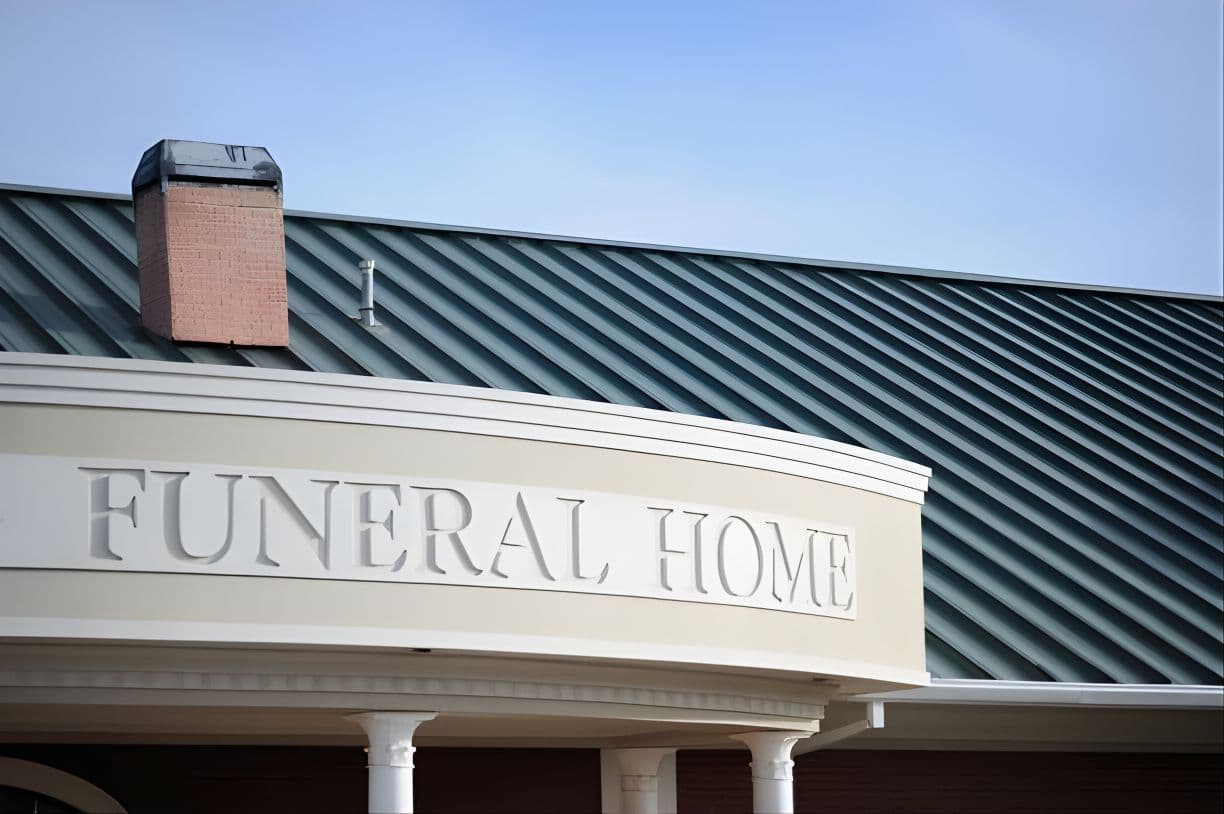Catholic, Protestant, Muslim and Jewish funerals: what are the differences?

Introduction
Switzerland is distinguished by its religious diversity. Catholics, Protestants, Muslims and Jews coexist in mutual respect for each other's beliefs. When a death occurs, this diversity is reflected in funeral practices: each tradition has its own rites, symbols and obligations.
Understanding the differences between Catholic, Protestant, Muslim and Jewish funerals is not just a matter of general knowledge. It is a practical necessity for families who must organise funerals in accordance with the deceased's convictions. It is also essential for loved ones who wish to participate in a ceremony without committing a faux pas.
From the Catholic sacrament to Protestant sobriety, from the rapidity of Muslim funeral rites to ancestral Jewish traditions, each religion approaches death with its own codes. Some favour burial, others accept cremation. Ceremony durations vary, as do the prayers and funeral symbols used.
This guide compares the four major religious traditions practised in Switzerland. It will help you organise respectful funerals, whether they are denominational, interdenominational or secular.
📌 Summary (TL;DR)
Catholic funerals favour the sacrament and structured liturgy. Protestants favour sobriety and personalisation. Muslims respect a precise ritual with rapid burial (24-48h). Jews follow strict ancestral traditions with burial within 24 hours.
Each religion has its own codes, but all share respect for the deceased and support for loved ones. Interdenominational or secular ceremonies are possible with good preparation.
📚 Table of contents
- Catholic funerals: tradition and sacrament
- Protestant funerals: sobriety and personalisation
- Muslim funerals: rapidity and precise ritual
- Jewish funerals: respect and ancestral tradition
- Comparative table of the four funeral rites
- Common points between religious traditions
- Organising interdenominational or secular funerals
- Choosing a funeral home that respects your traditions
- Publishing a death notice that respects tradition
Catholic funerals: tradition and sacrament
Catholic funerals follow a codified ritual that accompanies the deceased and their family through the sacrament of the funeral rites. The ceremony generally takes place in church, in the presence of the coffin.
The funeral mass lasts between 60 and 90 minutes. The priest celebrates the religious service with specific prayers: the Our Father, the Hail Mary, and psalms. Holy water, incense and the cross constitute the central symbols of the rite.
The funeral vigil often precedes the main ceremony. It allows loved ones to gather and pray together. The priest blesses the coffin before burial or cremation.
Since 1963, the Catholic Church has authorised cremation, provided that the ashes are kept in a sacred place and not scattered. This evolution demonstrates an adaptation to contemporary practices.
To explore the symbolism used during ceremonies in greater depth, consult our article on funeral symbols and their meaning.
Protestant funerals: sobriety and personalisation
Protestant funerals are distinguished by their simplicity and flexibility. The service does not constitute a sacrament, but a moment of contemplation and celebration of the deceased's life.
The religious ceremony generally lasts between 30 and 45 minutes. The pastor reads passages from the Bible and psalms, without ritual incense or holy water. The emphasis is placed on the word and testimony.
Unlike the Catholic rite, Protestant funerals can be held at the crematorium, cemetery or in a temple. Cremation is fully accepted, without restriction.
The family has great freedom in the organisation: choice of music, personal testimonies, secular tributes. This personalisation allows the creation of a ceremony that truly reflects the deceased's personality.
Protestant religious traditions value authenticity and the sharing of sincere emotions rather than liturgical formalism.
Muslim funerals: rapidity and precise ritual
Muslim burial follows strict rules derived from Islamic tradition. Burial must take place within 24 to 48 hours following death, except for administrative constraints.
The ritual washing (Ghusl) is performed by people of the same sex as the deceased. The body is then wrapped in a white shroud (Kafan), a symbol of purity and equality before God.
The funeral prayer (Salat al-Janazah) constitutes the heart of the ceremony. It takes place standing, without prostration, and lasts between 15 and 30 minutes. Sobriety is the rule: no flowers, no music.
In Switzerland, a coffin is mandatory for sanitary reasons, unlike in some Muslim countries. The body is positioned on the right side, face turned towards Mecca. Cremation is strictly forbidden.
Contemplation may be separated between men and women according to family and community traditions.
Jewish funerals: respect and ancestral tradition
Jewish funerals follow millennia-old rules that demonstrate profound respect for the deceased. Burial must take place quickly: before sunset or within 24 hours.
The ritual washing (Tahara) is performed by the Hevra Kadisha, the Jewish burial society. The deceased is dressed in a simple white shroud, placed in a wooden coffin without ornaments or metal. This simplicity symbolises the equality of all before death.
The ceremony includes the reading of psalms and the recitation of the Kaddish, a prayer of sanctification. The Kriah, symbolic tearing of the garment, expresses the pain of mourning.
Cremation is strictly forbidden in Orthodox Jewish tradition. The body must return to the earth according to biblical principle.
Mourning is structured in three periods: the Shiva (7 days of intensive contemplation), the Shloshim (30 days) and the year of mourning for close relatives. This organisation helps the bereaved to progressively work through their grief.
Comparative table of the four funeral rites
| Criterion | Catholic | Protestant | Muslim | Jewish |
|---|---|---|---|---|
| Burial timeframe | 3-7 days | 3-7 days | 24-48h | Before sunset |
| Cremation | Yes (since 1963) | Yes | No (forbidden) | No (forbidden) |
| Ceremony duration | 60-90 min | 30-45 min | 15-30 min | 30-45 min |
| Main location | Church | Temple/Crematorium | Mosque/Cemetery | Cemetery |
| Symbols | Cross, incense, holy water | Bible, sobriety | White shroud, Mecca orientation | White shroud, wooden coffin |
| Mourning period | Not codified | Not codified | 40 days | Shiva (7d), Shloshim (30d), 1 year |
Common points between religious traditions
Despite their differences, the funeral rites of the four major religions share fundamental values. All place respect for the deceased at the centre of their concerns.
Supporting the bereaved family constitutes a common pillar. Whether through the Jewish Shiva, Muslim condolences or Christian vigils, each tradition provides for community support.
Ritual plays an essential role in the grieving process. It structures emotion, gives meaning to loss and allows the living to say goodbye with dignity. This therapeutic dimension transcends religious boundaries.
The community dimension is also shared: funerals are never a solitary act. The presence of the religious or family community demonstrates solidarity in the face of death.
Finally, all these religious traditions celebrate memory and honour the deceased's passing, each according to its own symbolism and beliefs about the afterlife.
Organising interdenominational or secular funerals
Multicultural or mixed families face a delicate challenge: reconciling different religious traditions during the same ceremony. Dialogue remains the key.
Begin by speaking with the religious officiants concerned. Some agree to adapt their ritual or to participate in a shared ceremony. Flexibility varies according to denominations and individuals.
Identify the major non-negotiable prohibitions: cremation for Muslims and Orthodox Jews, for example. Respecting these fundamental limits avoids conflicts and preserves the deceased's dignity.
The civil ceremony constitutes an increasingly chosen alternative in Switzerland. It allows the creation of a personalised tribute, without religious reference, whilst maintaining the required solemnity.
To help you with your choices, consult our guides on cremation or burial and advance funeral planning.
Choosing a funeral home that respects your traditions
Selecting a funeral home sensitive to religious specificities is crucial for respectful funerals. Not all service providers master the rituals of each denomination.
Verify the professional's experience with your tradition: do they know the requirements of Muslim or Jewish ritual washing? Can they respect the tight deadlines imposed by certain religions?
A good service provider maintains regular contact with local religious communities. They have appropriate supplies: compliant shrouds, simple wooden coffins for Jewish rites, body orientation according to prescriptions.
Cultural sensitivity cannot be improvised. Do not hesitate to ask specific questions about their experience and references. A competent professional will be able to reassure and guide you.
Consult our directory of funeral homes in Switzerland and our guide to choosing your funeral home.
Publishing a death notice that respects tradition
Wolky allows you to publish a death notice adapted to each religious tradition, respecting your beliefs and your budget.
Our platform offers appropriate formulas for each denomination: biblical quotations for Christians, Quranic verses for Muslims, psalms for Jews. You can fully personalise the content and presentation.
Religious symbols are available: cross, crescent, Star of David. Add photos of the deceased to create a personal and warm tribute. The Memories commemorative page allows you to perpetuate the memory according to your values.
At 180 CHF, our price remains accessible compared to the 800 to 2,000 CHF of traditional press. No hidden fees. The publication is online within minutes and accessible 24/7 to your loved ones, wherever they are.
Sharing is simple: a unique link allows you to quickly inform your entire religious and family community, facilitating the organisation of the funeral and contemplation.
Each religious tradition brings its own vision of the passage from life to death. Catholic funerals value the sacrament and intercession, Protestants favour sobriety and personalisation, Muslims respect a precise and rapid ritual, whilst Jews honour millennia-old traditions. Despite their differences, all share a common objective: to accompany the deceased with dignity and support loved ones in their grief.
Whatever tradition is chosen, the essential thing remains to respect the deceased's wishes and the family's convictions. Whether you are organising religious, interdenominational or secular funerals, our directory of funeral homes helps you find a service provider that respects your traditions. And to inform your loved ones with dignity, Wolky allows you to publish a death notice online for 180 CHF, accessible 24/7 and easily shareable. A simple, transparent and respectful solution to honour your loved one's memory.


